Table of Contents
ToggleSources
- https://www.archives.gov/founding-docs/declaration-transcript
The official transcript of the Declaration of Independence from the National Archives provides the authoritative source for Jefferson's words about natural rights, directly supporting the blog post's opening quote and discussion. - https://plato.stanford.edu/entries/rights/
The Stanford Encyclopedia of Philosophy's entry on rights offers a comprehensive academic overview of natural rights theory, including historical context from ancient Greece to Enlightenment thinkers, which supports the post's discussion about the origins of natural rights. - https://constitutioncenter.org/the-constitution
The National Constitution Center provides authoritative information about the U.S. Constitution and its system of checks and balances, which directly relates to the post's discussion about how the Founding Fathers sought to protect natural rights through government structure. - https://www.britannica.com/topic/natural-rights
Encyclopedia Britannica's entry on natural rights provides a reliable, scholarly explanation of the concept and its philosophical foundations, supporting the post's distinction between natural rights and legal rights. - https://www.law.cornell.edu/wex/natural_rights
Cornell Law School's Legal Information Institute offers a legal perspective on natural rights, helping to clarify the distinction between natural rights and legal rights as discussed in the blog post.
Key Points
- Natural rights are universal and inalienable, given to all individuals by their Creator, not by government.
- The Declaration of Independence asserts that all people have the rights to life, liberty, and the pursuit of happiness.
- Natural rights exist regardless of government recognition and cannot be changed by legislation or cultural differences.
- The concept of natural rights originated in ancient Greece and was later expanded during the Age of Enlightenment.
- Governments can take away natural rights in specific cases, such as imprisonment for violating others' rights.
- Natural rights differ from legal rights; natural rights are inherent, while legal rights are granted and enforced by governments.
- Legal rights, such as voting or copyright laws, can vary by culture and be altered by governments.
- The U.S. Constitution and checks and balances system were designed to protect natural rights by limiting government power.
- A just government's role is to protect natural rights, and its failure to do so makes it unjust.
- Awareness and advocacy are crucial to protecting natural rights, especially for those whose rights are at risk.
Summary
The blog post explores the concept of natural rights, as articulated in the Declaration of Independence, emphasizing that these rights—like life, liberty, and the pursuit of happiness—are inherent and universal, not granted by governments. It distinguishes natural rights from legal rights, noting that while governments can protect or restrict legal rights, natural rights exist independently. The post also highlights the historical roots of natural rights and stresses the importance of safeguarding them, even as legal rights may vary or change over time.
“We hold these truths to be self-evident, that all men are created equal, that they are endowed by their Creator with certain unalienable Rights, that among these are Life, Liberty and the pursuit of Happiness.”
– Declaration of Independence, July 4th, 1776
What are natural rights? How are they enforced? Are they given to us when we’re born? Or does the government decide who gets them and who doesn’t? Who decides what a natural right is? Is it the people? The president? Or those in Congress?
Thomas Jefferson and the Declaration of Independence
Thomas Jefferson wrote that all men are created equal in the Declaration of Independence. Interestingly, he said that we all have rights given to us by God that can’t be taken away. That is an incredibly poignant statement that we often take for granted.
But in this opening line, Thomas Jefferson is touching upon something that’s been presented by many a scholar before him, the idea that there are certain rights everyone has, regardless of whether or not the government acknowledges it. These are considered natural rights, and every single person, no matter their race, sex, or orientation, has them.
Who Has Natural Rights?
Natural rights are rights given to every single person in the world. These rights cannot be changed through legislation or due to cultural differences.
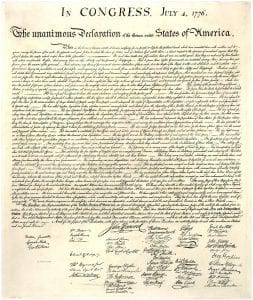
In America, our Declaration of Independence stipulated that every person has the right to life, liberty, and the pursuit of happiness. This means that if a government is just, almost everyone should have access to these rights. It also implies that a government would be considered unjust if it doesn’t protect these rights. These rights suggest a completely level playing field. No one should automatically be given the right to govern (or work any other job) because they were born into a certain family.
In America, the Founding Fathers established systems to protect individual rights by limiting government power. The United States Constitution protects many legal rights, but the document also aims to protect the overall rights to freedom and life. The installation of a checks and balances system also limits the amount of power an individual branch of government holds.
Who Created Natural Rights?
While some may think that natural rights originated in the United States, the concept of universal, inalienable rights was present in ancient Greece. Natural rights were cited during the Age of Enlightenment to challenge the idea of the divine rule of kings. The philosophical and political idea of a social contract (the idea that a group of people opts into a governing body) arose here.

When observing specific examples of natural rights, you’ll notice they look a lot like human rights. And while, indeed, many of the ideas overlap, it’s important to note that natural rights are not a standard set by a governing body. Someone has the right to freedom or life, even if the government hasn’t passed any laws protecting it.
Can They Be Changed?
While there may be variance over history about who natural rights apply to, there is a general theme of every person having the right to life and the right to freedom. There will, of course, be questions about what individual actions would be considered a natural right (such as whether or not political uprising is a right), but it’s fair to say there isn’t a way to change these rights.
Can They Be Taken Away?
Yes, in very specific cases, the government can take them away. This is typically what happens when someone is sent to prison. Because they’ve violated the rights of others (by committing murder, for example), that individual loses all claim to their natural rights. Depending on the punishment of the crime, this loss of rights may be temporary, or it may be permanent. A just government will typically aim to take as few of people’s rights away as possible (since a government’s job is to protect people’s rights).
What’s the Difference Between Natural Rights and Legal Rights?
Natural rights are not enforced through a certain law or other form of legislation. While laws may protect certain individuals’ natural rights (such as the abolition of slavery in the United States), there isn’t an overarching ‘freedom’ law. This is a concept that is protected through the courts rather than legislated.

Natural rights also exist if there’s no government. If a remote group of people had no unified government, they would still have the right to life and freedom, even though there aren’t any laws saying so.
A legal right, however, can only exist in a governing body. Legal rights would include the right to vote, any copyright laws, or laws banning institutions such as segregation. While these rights are arguably just as important as natural rights, they can also vary from culture to culture.

Get Smarter on US News, History, and the Constitution
Join the thousands of fellow patriots who rely on our 5-minute newsletter to stay informed on the key events and trends that shaped our nation's past and continue to shape its present.
For example, while the United States has decided an individual has the right to own their product or idea without the worry of theft, another country might not police intellectual property rights. It would, therefore, not grant their people such a right.
The government can also alter legal rights at any time. The United States could decide tomorrow that only people born in New York are citizens, and everyone else has to now apply for citizenship or get deported. While an extreme example, this is why it’s important to know the difference between a natural right and a legal one.
A legal right must always be protected. Even if we think it’s safe, there’s a chance that someone could take it away from us if given enough power.
In Conclusion
Natural rights are integral to anyone living a happy, fruitful life. While most people in the United States don’t have to worry about losing their natural rights, it’s important to be aware of the people who might not have the same luxury. It may not be possible for one person to stop all the human rights abuses in the world, but through supporting organizations who have the same aim or electing people who want to help, we can begin to close that gap.
What Are Natural Rights? Quiz
Frequently Asked Questions
What are natural rights according to the Declaration of Independence?
Who has natural rights?
Can natural rights be taken away?
What is the difference between natural rights and legal rights?
Where did the concept of natural rights originate?
How useful was this post?
Click on a star to rate it!
Average rating / 5. Vote count:
No votes so far! Be the first to rate this post.
We are sorry that this post was not useful for you!
Let us improve this post!
Tell us how we can improve this post?

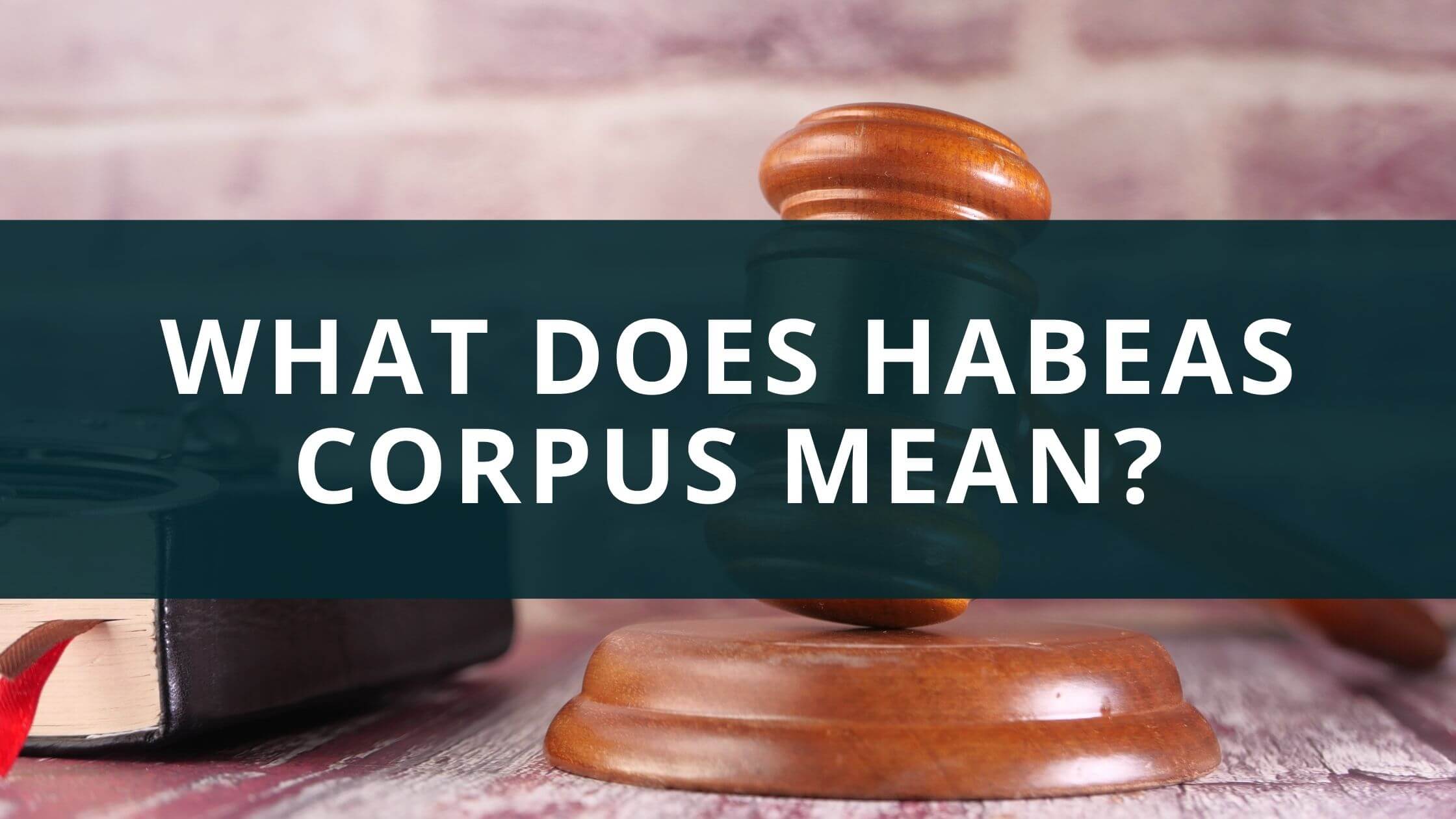
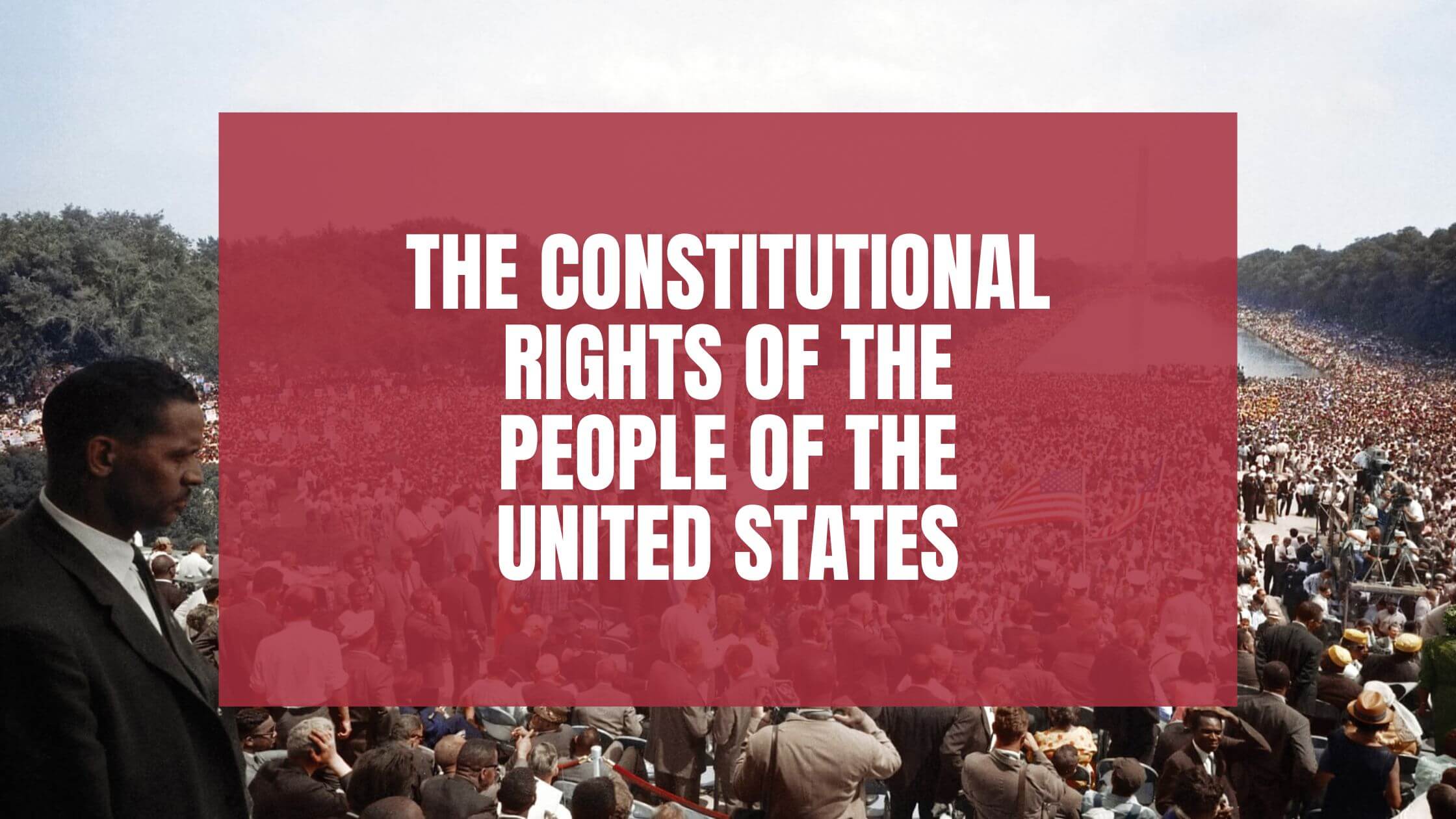
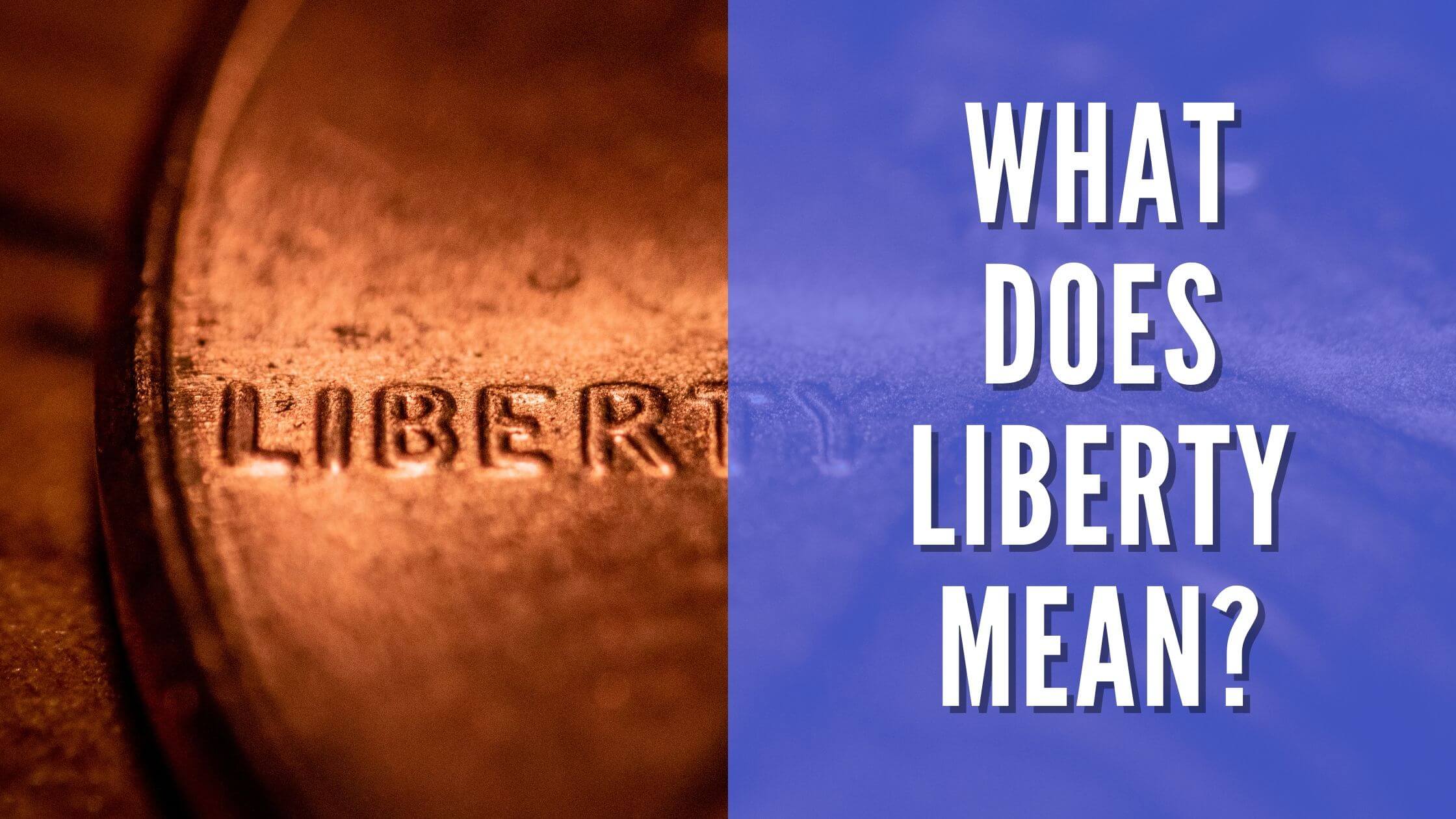


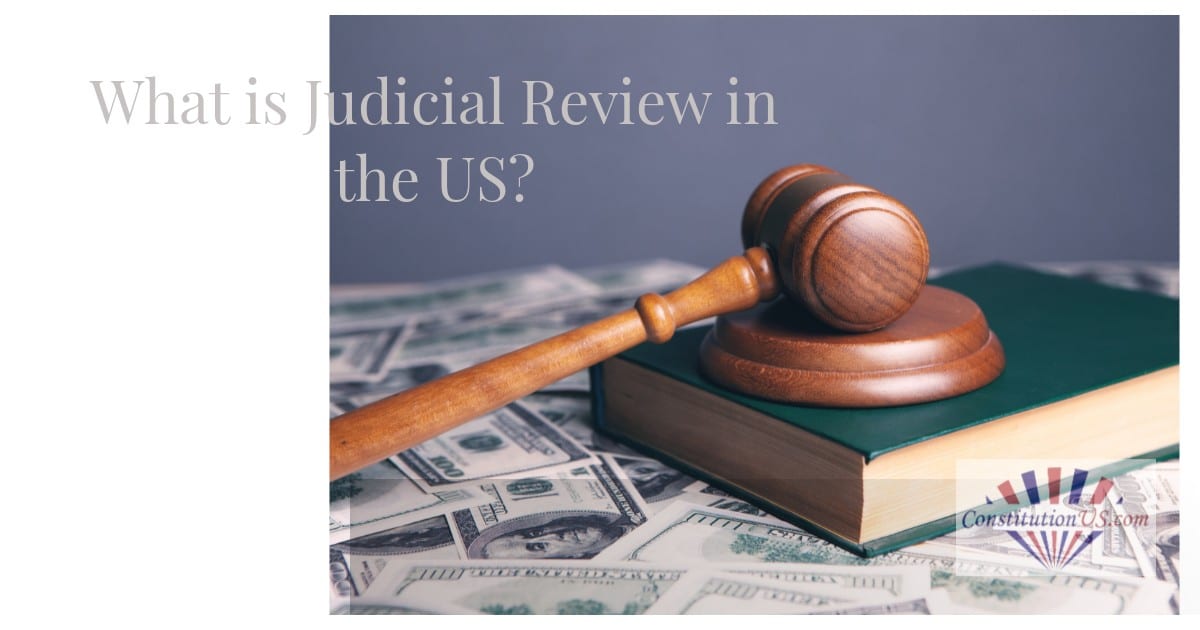
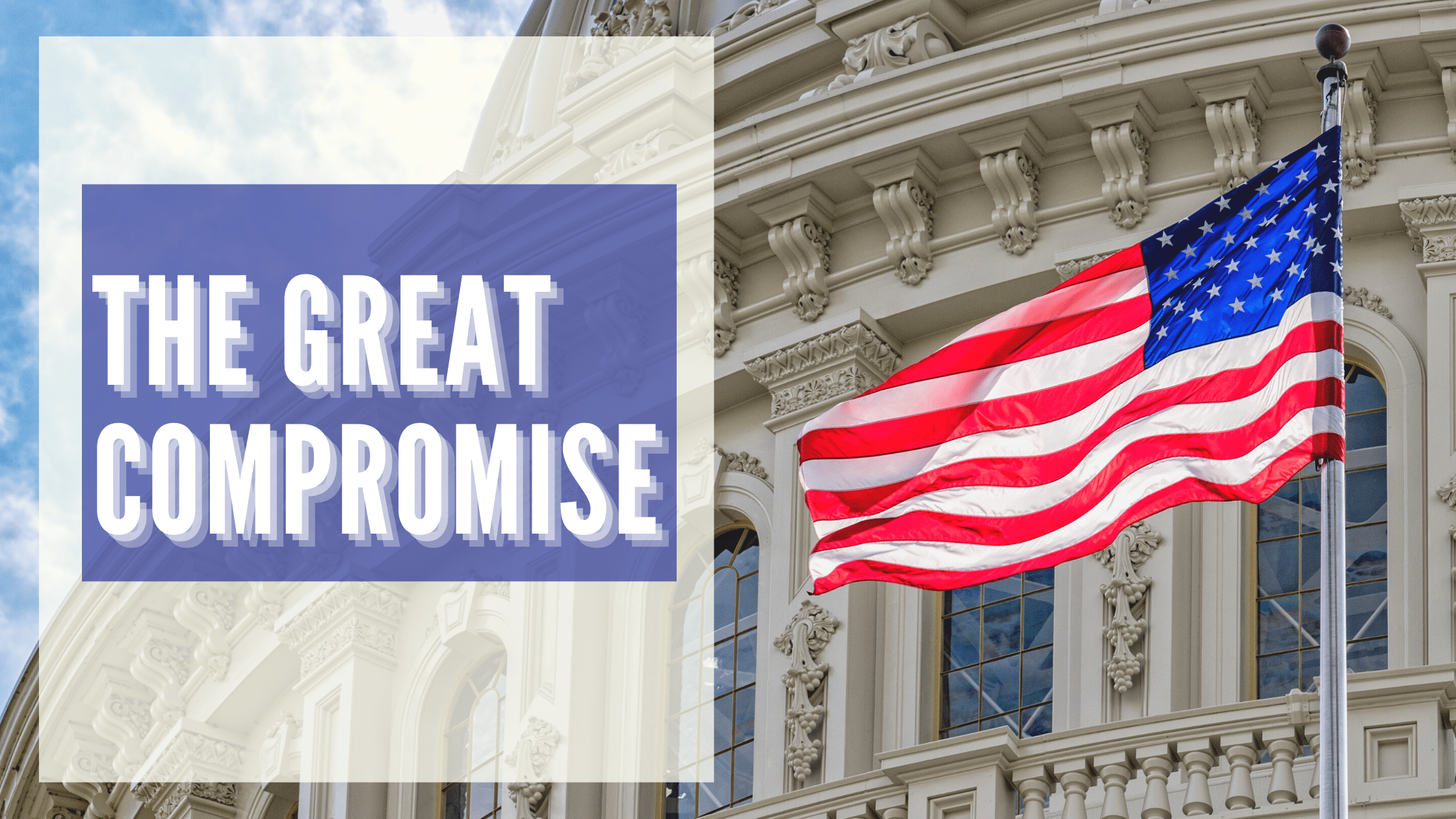
One Response
The United States or States is forbidden from making such a declaration as forcing Natural Born Citizens and Naturalized Citizens into again applying for citizenship.
A person born in the United States are Natural Born Citizens by Natural Right and anyone Naturalized as a Citizen by Natural Right is a citizen of the United States.
Furthermore, Article 1 section 9 and 10 forbid the United States or States, counties, city councils from creating any ex post facto laws.
Therefore, the States or the United States government in any shape form or fashion is FORBIDDEN from changing a Natural Born Citizen to anything else or a Naturalized Citizen to anything else and forcing them to having to apply for citizenship.
It’s literally forbidden in the Constitution to the States and United States in all branches.